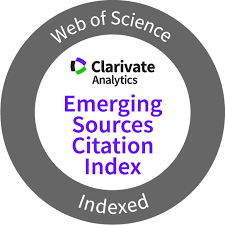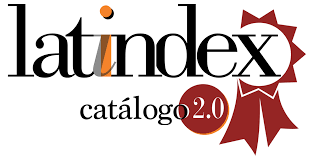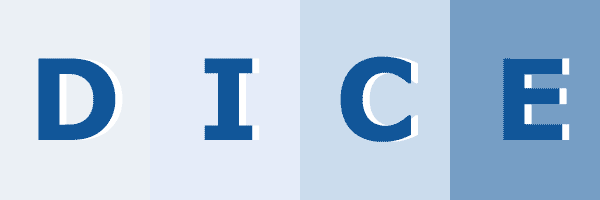Think tanks, lobbies and experts as sources in the coverage of climate change in the newspaper El País
DOI:
https://doi.org/10.5783/revrrpp.v14i28.876Keywords:
public relations, media attention, climate change, sources, stakeholder, think tanksAbstract
Public relations have emerged as a key field for managing public perception in the context of combating climate change. They can play a critical role in communicating the causes of the climate crisis, an area traditionally perceived as serving corporate interests. However, the actions of interest groups can not only enhance public understanding and engagement but also foster a proactive approach to climate challenges.
Among their strategies to gain influence in public decision-making, interest groups offer themselves as sources to the media. The main objective of this study is to characterize the presence of interest groups as journalistic sources in climate change coverage in the Spanish newspaper El País, compared to other sources such as politicians, scientists, and activists. The hypothesis proposed is that interest groups have a greater presence than ecological activism in climate change coverage. Regarding interest groups, distinctions are made between think tanks, lobbies, and independent experts, considering the specific climate change topic in which they focus their strategic action and their spatial scope of influence.
The results show that interest groups constitute the primary source type for journalists covering climate change, following political, governmental, and institutional sources, representing 29,3% of the 300 sources observed. The total of interest groups—which includes lobbies, think tanks, and experts—reaches a significant 27,9%. Within this percentage, lobbies stand out at 15.3%, above experts (7,7%) and think tanks (5%). Science is represented in 13.7% of the climate change pieces, above NGOs and activism, which together account for 10.7%. The prominent presence of interest groups is also notable in the international context, especially in Latin America, given El País’s ‘America’ edition, which provides coverage in countries such as Mexico, Colombia, Chile, and Argentina. The analysis of the spatial context of the journalistic pieces shows that nearly half of the analyzed news items have an international focus, followed by coverage of topics in Latin America and the Caribbean. Together, these account for almost eighty percent of the analyzed sample.
The predominance of interest groups over ecological activism as actors in the climate narrative reflects various factors, most notably the former's capacity to professionalize their communication and develop persuasive strategies that facilitate their inclusion in the media as legitimate and authoritative sources. In contrast, ecological activism faces more challenges in accessing the media and establishing itself as a recurring source. This situation has significant implications for the plurality of voices in the climate change debate. Prioritizing the arguments promoted by think tanks and lobbies can create a bias in the coverage toward certain types of solutions, limiting other alternative interpretations that emphasize the structural causes of the climate crisis to propose alternative solutions. In fact, appearances of pieces focusing on the causes of climate change featuring interest groups are minimal in the analyzed sample, compared to those centered on impacts or solutions: half of the pieces in which think tanks, lobbies, or experts appear are linked to economic or technological solutions to the climate crisis. The causes of climate change, with only 1.8% of the coverage, are notably underrepresented.
Downloads
References
Adi, A. (2018). Protest public relations: Communicating dissent and activism – an introduction. En Protest Public Relations: Communicating dissent and activism (pp. 1-11) Taylor & Francis. https://doi.org/10.4324/9781351173605-1
Almansa-Martínez, A., y Fernández-Souto, A.B. (2020). Professional Public Relations (PR) trends and challenges. Profesional De La información, 29(3). https://doi.org/10.3145/epi.2020.may.03
Anderson, A. (2017). Source influence on journalistic decisions and news coverage of climate change. En M. C. Nisbet et al. (Eds.), Oxford research encyclopedia on climate change communication. Oxford University Press. https://doi.org/10.1093/acrefore/9780190228620.013.356
Bettini, G. (2019). And yet it moves! (Climate) migration as a symptom in the Anthropocene. Mobilities, 14(3), 336-350. https://doi.org/10.1080/17450101.2019.1612613
Boykoff, M., y Boykoff J. (2004). Balance as Bias: Global Warming and the US Prestige Press. Global Environmental Change, 14, 125-36. https://doi.org/10.1016/j.gloenvcha.2003.10.001
Boykoff, M., y Roberts, J. T. (2007). Media coverage of climate change: current trends, strengths, weaknesses. Human Development Report 2007/2008. Naciones Unidas. https://hdr.undp.org/system/files/documents/boykoffmaxwellandrobertsjtimmons.pdf
Boykoff, M., Katzung, J. y Nacu-Schmidt, A. (2020). A Review of Media Coverage of Climate Change and Global Warming in 2019. Media and Climate Change Observatory. University of Colorado https://doi.org/10.25810/fev9-cs67
Boykoff, M., Church, P., Katzung, J., Nacu-Schmidt, A., y Pearman, O. (2021). A Review of Media Coverage of Climate Change and Global Warming in 2020. Media and Climate Change Observatory. University of Colorado. https://doi.org/10.25810/2nc9-bj43
Boykoff, M., Katzung, J., Nacu-Schmidt, A., y Pearman, O. (2022). A Review of Media Coverage of Climate Change and Global Warming in 2021. Media and Climate Change Observatory. University of Colorado. https://doi.org/10.25810/3vaz-2z04
Brulle, R. J. (2014). Institutionalizing delay: foundation funding and the creation of U.S. climate change counter-movement organizations. Climatic Change, 122(4), 681-694. https://doi.org/10.1007/s10584-013-1018-7
Brulle, R. J., y Werthman, C. (2021). The role of public relations firms in climate change politics. Climatic Change, 169(1), 8. https://doi.org/10.1007/s10584-021-03244-4
Carlson, M. (2009). Dueling, dancing, or dominating? Journalists and their sources. Sociology Compass, 3(4), 526-542. https://doi.org/10.1111/j.1751-9020.2009.00219.x
Carvalho, A., y Burgess, J. (2005). Cultural circuits of climate change in UK broadsheet newspapers, 1985‐2003. Risk Analysis, 25(6), 1457‐1469. https://doi.org/10.1111/j.1539-6924.2005.00692.x
Castillo Esparcia, A., Smolak Lozano, A., y Fernández Souto, A. (2017). Lobby and communication in Spain. Analysis of the presence of lobbies in Spanish prestigious press. Revista Latina de Comunicación Social, 72, 783-802. https://doi.org/10.4185/RLCS-2017-1192-42en
Castillo-Esparcia, A., Castillero-Ostio, E., y Castillo-Díaz, A. (2020). Los think tanks en España. Análisis de sus estrategias de comunicación digitales. Revista Latina de Comunicación Social, (77), 253-273. https://doi.org/10.4185/RLCS-2020-1457
Comfort, S. E., Tandoc, E., y Gruszczynski, M. (2020). Who is Heard in Climate Change Journalism? Sourcing Patterns in Climate Change News in China, India, Singapore, and Thailand. Climatic Change, 158 (3), 327–343. https://doi.org/10.1007/s10584-019-02597-1
Doyle, J. (2011). Mediating Climate Change. Routledge. https://doi.org/10.4324/9781315594583
Eide, E., Kunelius, R., y Kumpu, V. (Eds.) (2010). Global Climate, Local Journalisms: A Transnational Study of How Media Make Sense of Climate Summits. Projectverlag.
Farrell, J. (2016). Corporate funding and ideological polarization about climate change. Proceedings of the National Academy of Sciences, 113(1), 92-97. https://doi.org/10.1073/pnas.150943311
Franklin, B., y Carlson, M. (2010). Journalists, Sources, and Credibility: New Perspectives. Routledge Chapman & Hall.
Gibson, T. (2017). Economic, technological, and organizational factors influencing news coverage of climate change. En M. C. Nisbet et al. (Eds.), Oxford research encyclopedia on climate change communication. New York: Oxford University Press. https://doi.org/10.1093/acrefore/9780190228620.013.355
Grundmann, R. y Krishnamurthy, R. (2010). The Discourse of Climate Change: A Corpus‐based Approach. Critical Approaches to Discourse Analysis across Disciplines, 4 (2), 113 – 133.
Hansen, A. (2010). Environment, media and communication. Routledge.
Hansen, A., y Cox, R. (Eds.). (2022). The Routledge Handbook of Environment and Communication (2nd ed.). Routledge. https://doi.org/10.4324/9781003119234
Igartua, J. J. (2006). Métodos cuantitativos de investigación en comunicación. Bosch
Iranzo, A. y Latorre-Lázaro, T. (2019). La noticia: manual práctico de redacción. Publicaciones de la Universitat Jaume I. https://doi.org/10.6035/sapientia149
Karacaoğlu, B., y Akbaba, M. F. (2024). Multidisciplinary perspective: A review of the importance of communication in managing climate change challenges. Environmental Research and Technology, 7(3), 457-470. https://doi.org/10.35208/ert.1461700
Katzung, J., Nacu-Schmidt, A., Boykoff, M., Pearman, O. y Fernández-Reyes, R. (2023). Media and Climate Change Observatory Special Issue 2022: A Review of Media Coverage of Climate Change and Global Warming in 2022.Media and Climate Change Observatory. University of Colorado https://doi.org/10.25810/vtaz-sn25
Krippendorff, K. (1990). Metodología de análisis de contenido. Teoría y Práctica. Paidós.
Laboratorio de Periodismo (2024). El País lidera la audiencia digital de medios, según el último EGM. https://laboratoriodeperiodismo.org/el-pais-lidera-la-audiencia-digital-de-medios-segun-el-ultimo-egm/
López-Gómez, S., y Castillo-Esparcia, A. (2022). Opinión pública sobre el cambio climático en Estados Unidos: presencia e influencia de lobbies y think tanks en la prensa norteamericana. En A.B. Fernández-Souto y A. Castillo-Esparcia (Eds), Relaciones públicas en la economía y sociedad de confianza (pp. 123-136). Tirant lo Blanch. https://doi.org/10.13140/RG.2.2.12968.85764
Lück, J., Wozniak, A., y Wessler, H. (2016). Networks of coproduction: How journalists and environmental NGOs create common interpretations of the UN climate change conferences. The International Journal of Press/Politics, 21(1), 25–47. https://doi.org/10.1177/1940161215612204
McCright, A., y Dunlap, R. E. (2003). Defeating Kyoto: The conservative movement’s impact on U.S. climate change policy. Social Problems, 50(3), 348–373. https://doi.org/10.1525/sp.2003.50.3.348
Moreno, J. A. (2024). Análisis de los think tanks contrarios a la acción climática europeos a través de las percepciones de políticos y sus equipos. Revista Internacional De Relaciones Públicas, 14(27), 5–22. https://doi.org/10.5783/revrrpp.v14i27.856
Moreno-Cabanillas, A., Castillero-Ostio, E., y Serna-Ortega, Á. (2024). Digital disinformation strategies of European climate change obstructionist think tanks. Frontiers in Communication, 9, 1470343. https://doi.org/10.3389/fcomm.2024.1470343
Nacu-Schmidt, A., Katzung, J., Boykoff, M., Fernández-Reyes, R., y Pearman, O. (2024). Media and Climate Change Observatory Special Issue 2023: A Review of Media Coverage of Climate Change and Global Warming in 2023. Media and Climate Change Observatory. University of Colorado https://doi.org/10.25810/htm2-4783
O’Neill, S., Williams, H. T. P., Kurz, T., Wiersma, B., y Boykoff, M. (2015). Dominant frames in legacy and social media coverage of the IPCC Fifth Assessment Report. Nature Climate Change, 5(4), 380-385. https://doi.org/10.1038/nclimate2535
Painter, J. (2010). Summoned by Science. Reporting climate change at Copenhagen and beyond. Reuters Institute for the Study of Journalism. https://reutersinstitute.politics.ox.ac.uk/sites/default/files/2017-12/Summoned%20by%20Science%20Reporting%20Climate%20Change%20at%20Copenhagen%20and%20beyond.pdf
Pan, Y., Opgenhaffen, M., y Van Gorp, B. (2019). Negotiating Climate Change: A Frame Analysis of COP21 in British, American and Chinese News Media. Public Understanding of Science, 28 (5). https://doi.org/10.1177/0963662518823969
Piñuel, J.L (2002). Epistemología, metodología y técnicas del análisis de contenido. Estudios de Sociolingüística, 3(1), 1-42
Sassan, C., Mahat, P., Aronczyk, M., y Brulle, R. J. (2023). Energy Citizens “Just Like You”? Public Relations Campaigning by the Climate Change Counter-movement. Environmental Communication, 17(7), 794-810. https://doi.org/10.1080/17524032.2023.2255388
Schäfer, M., y Painter, J. (2021). Climate journalism in a changing media ecosystem: Assessing the production of climate change‐related news around the world. Climate Change, 12(19, e675. https://doi.org/10.1002/wcc.675
Schmidt, A., Ivanova, A., y Schäfer, M. (2013). Media Attention for Climate Change Around the World: A Comparative Analysis of Newspaper Coverage in 27 Countries. Global Environmental Change, 23 (5), pp 1233–1248. https://doi.org/10.1016/j.gloenvcha.2013.07.020
Shoemaker, P. J., y Cohen, A. A. (2012). News around the world: Content, practitioners, and the public. Routledge. https://doi.org/10.4324/9780203959091
Teso, G., Gaitán, J.A., Mercado, M.T., Piñuel, J.L., Lozano, C., Catalina, B., Fernández-Reyes, R., Morales, E., Alain, L., Sánchez-Holgado, P., Frías, M., Arcila, C., Jiménez, I., y Barranquero, A. (2024). La comunicación de la crisis climática y la transferencia social del conocimiento sobre la acción climática en medios e Internet. V Informe del Observatorio de la Comunicación del Cambio Climático. ECODES. https://observatoriocomunicacc.es/wp-content/uploads/2024/04/2023_V_INFORME_OBSCC.pdf
Trumbo, C. W. (1996). Constructing climate change. Claims and frames in US news coverage of an environmental issue. Public Understanding of Science, 5, 269-283.
Vasquez, R. A. (2024). Examining the Role of Corporate Climate Change Communications. In Routledge Handbook of Risk, Crisis, and Disaster Communication (pp. 100-112). Routledge. https://doi.org/10.4324/9781003363330-10
Vogler, D., y Schäfer, M.S. (2020). Growing influence of university PR on science news coverage? A longitudinal automated content analysis of university media releases and newspaper coverage in Switzerland, 2003–2017. International Journal of Communication, 14, 3143–3164. https://ijoc.org/index.php/ijoc/article/view/13498/3113
Wang, G., y Huan, C. (2023). Negotiating climate change in public discourse: insights from critical discourse studies. Critical Discourse Studies, 21(2), 133–145. https://doi.org/10.1080/17405904.2023.2198725
Weingart, P., Engels, A., y Pansegrau, P. (2000). Risks of communication: discourses on climate change in science, politics, and the mass media. Public Understanding of Science, 9(3), 261‐283. https://doi.org/10.1088/0963-6625/9/3/304
Downloads
Published
How to Cite
Issue
Section
License
Copyright (c) 2024 Alberto E. López-Carrión, María Teresa Mercado-Sáez

This work is licensed under a Creative Commons Attribution-NonCommercial-NoDerivatives 4.0 International License.
Authors publishing in this journal agree to the following terms:
a. Authors retain copyright and grant the journal the right to be the first publication of the work as licensed under a Creative Commons Attribution License that allows others to share the work with an acknowledgement of authorship of the work and initial publication in this journal.
b. Authors may separately enter into additional arrangements for non-exclusive distribution of the version of the work published in the journal (e.g., placing it in an institutional repository or publishing it in a book), with an acknowledgement of initial publication in this journal.
c. Authors are allowed and encouraged to disseminate their work electronically (e.g. in institutional repositories or on their own website) before and during the submission process, as it can lead to productive exchanges, as well as earlier and higher citation of published work (see The Effect of Open Access).





